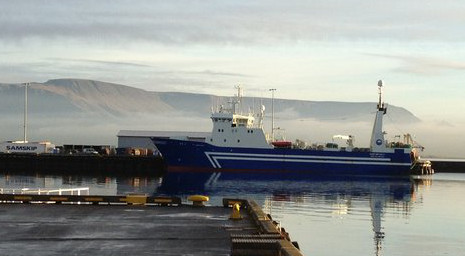Crowdsourcing Iceland’s Constitution through Facebook and Twitter


Demonstrating the global and political reach of social media, Iceland recently “crowdsourced” its constitution through a referendum that relied on feedback from Facebook and Twitter. While Iceland is the world’s first and only country to use crowdsourcing for major political decisions, fans of open government hope that this may become a model for other countries making urgent policy decisions during desperate times, as well as for those with more dictatorial forms of government. The New York Times reported on how Iceland is leading the way for the world by merging the social with the political.
Almost half of its 235,000 registered voters participated in Iceland’s constitutional referendum, with two-thirds supporting a proposed constitution put together by a 25-member panel of politicians. The panel took the voters’ social media comments into consideration in the development of the new constitution. These voters used the social media forum to express their support of certain measures, such as greater national control over the country’s natural resources. While Iceand’s Parliament is not required to enact the vote, many think it will hard for politicians to completely disregard the voters’ sentiments.
The collapse of the country’s debt-laden banks in 2008 led to the call for proposals for a new constitution. This financial crisis was heightened by the discovery of alleged corruption among well-established political and business figures, along with the disclosure of foreign ownership of the island’s coveted natural resources.
Shortly after this year’s Pots and Pans Revolution where citizens noisily went directly to Parliament to protest the deterioration of the country’s banking system, the government selected a group of everyday citizens to devise some proposals for reforming the constitution. They decided to expand this proposal process to all of the country’s concerned citizens by allowing them to submit their suggestions through social media. All of the submissions had the potential to shape the new constitution.
The newly proposed constitution expresses the need to guard against a similar economic catastrophe in the future and to limit the powers of the people accused of causing it. In addition, it also includes a constitutional guarantee to ensure that the country’s natural resources not already privately owned would become official national property. Interestingly, this provision regarding natural resources received support from 81 percent of the voters, which was the highest approval rate of any of the six proposed questions.
Such strong public endorsement shows the population’s desire for greater national control of the island’s highly profitable fish stocks, as well as the geothermal energy resources that heat 90 percent of homes on the island.
Looking forward, a draft bill will be presented to Parliament as soon as next month and Icelanders will have the opportunity to vote on adopting their new crowdsourced constitution in spring 2013. If approved, social media may become mainstream in the political process and empower the people choosing the people in power.
To discover the latest ways to use Facebook and Twitter in your social media marketing strategy, contact MDG.
At MDG, our 360° marketing approach uses just the right mix of traditional and online media to reach your company’s marketing goals. While some industries may fare better in print and others online, we strive to create a balanced approach where traditional, digital, and social media marketing efforts support each other and your marketing message is tailored to the medium. To stay on top of the Facebook and Twitter trends that will make an impact on your social media marketing results, contact MDG.
Read more at NYT.com.
